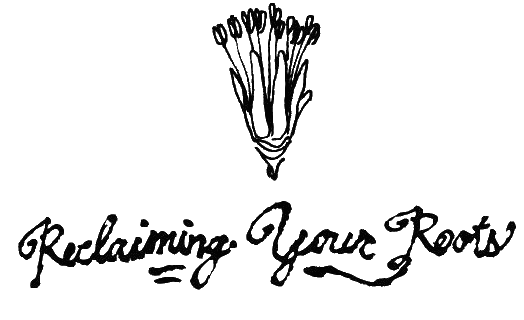Immune Support with Echinacea
When it comes to using herbs to fight off colds, flus and other infections (both bacterial and viral), there are quite a few options to choose from. Echinacea is a favorite of mine because it grows so easily here in East TN and is a beautiful plant to behold. In fact, many people grow Echinacea in their flower beds as an ornamental perennial without even realizing the medicine it contains! Echinacea is part of a group of herbs referred to as Immunostimulants.
This category of herbs is useful for treating short-term, acute infections through quickly activating or stimulating the immune system. In other words, these are the herbs that can give our body a bit of a kick in the pants to fight off those viruses, bacteria, etc. during the beginning of an infection, as well as throughout its duration. These herbs can also be used preventatively for potential exposure to pathogens, such as when traveling, flying on a plane, etc. Because these herbs act quickly on the surface immune system, immunostimulants need to be taken frequently and in decent dosages during an infection in order to be effective. Immunostimulants work through some of the following actions: increasing phagocytosis (“eating of cell debris”), increasing white blood cell division and activity, and moderating immune system chemical messengers, such as cytokines, which can both stimulate or inhibit the growth/activity of different immune cells. Due to their stimulating nature, these herbs are best for short-term use. Extended use can result in imbalances and stress on the body. Some examples of immunostimulants are: Garlic, Echinacea, Elder, Usnea, Boneset
Echinacea Echinacea augustifolia, e.purpurea, e.pallida
Parts used: Roots, leaves, and flowers
Medicinal uses: Energetically, Echinacea is a warming and drying plant and a wonderful immunostimulating herb, working by increasing macrophage T-cell activity. It has antimicrobial and anti-inflammatory properties and can also help astringe excess mucus production. It can be used for fending off colds, flus, and other acute upper respiratory infections, both bacterial and viral. It can also be beneficial for treating fungal yeast infections and urinary infections. Although most of the Echinacea supplements on the shelves only contain the roots, the entire aerial plant is medicinal and can be used to enhance the immune system. Echinacea is potent and strong medicine if used in adequate doses and is safe for everyone, children included. Most of its constituents are water soluble, so it can be used as tea, in the form of an infusion (leaves, flowers) and a decoction (roots). The entire plant can also be tinctured. For sore gums and mouth inflammation, a decoction of the root or diluted tincture can be used as a mouthwash. Echinacea is considered an “at risk” herb due to over-harvesting from the wild. Try to buy organically cultivated Echinacea or better yet, grow your own! If you are harvesting the roots for medicine, it is best to wait until the fall of the 3rd or 4th year of growth to harvest. The leaves and flowers can be harvested each year but it is important to not strip the plants completely as aerial growth helps to feed the root system. I aim to harvest around 20% of the tops each season.
Dosage: Although it can sometimes be touted as an immune tonic or a daily immune supporting herb, Echinacea’s effectiveness will decrease if it is used continuously. It’s best to take it in cycles of 5 days on, 2 days off until an infection is gone. Take frequent small doses of Echinacea (dose every 3 hrs or so, up to 4-5x/day) in tea or tincture at the first signs of infection or to bolster immunity before travel. This frequent dosing can be done for days 1-3 of an infection. If illness persists, drop dosage down to 3x/day. Tea: 1-2 tsp herb/1 c water (infusion for leaves/flowers, decoction for roots), up to 3-4 cups/day. Tincture: 1 dropperful every 2-4 hrs. (Days 1-3), 1-4 dropperfuls up to 3x/day (Days 4+).
Contraindications: Echinacea is in the aster family so folks with ragweed allergies may be sensitive to it. Also, because it is an immunostimulating herb, individuals with autoimmune conditions may find that using echinacea aggravates their conditions.


